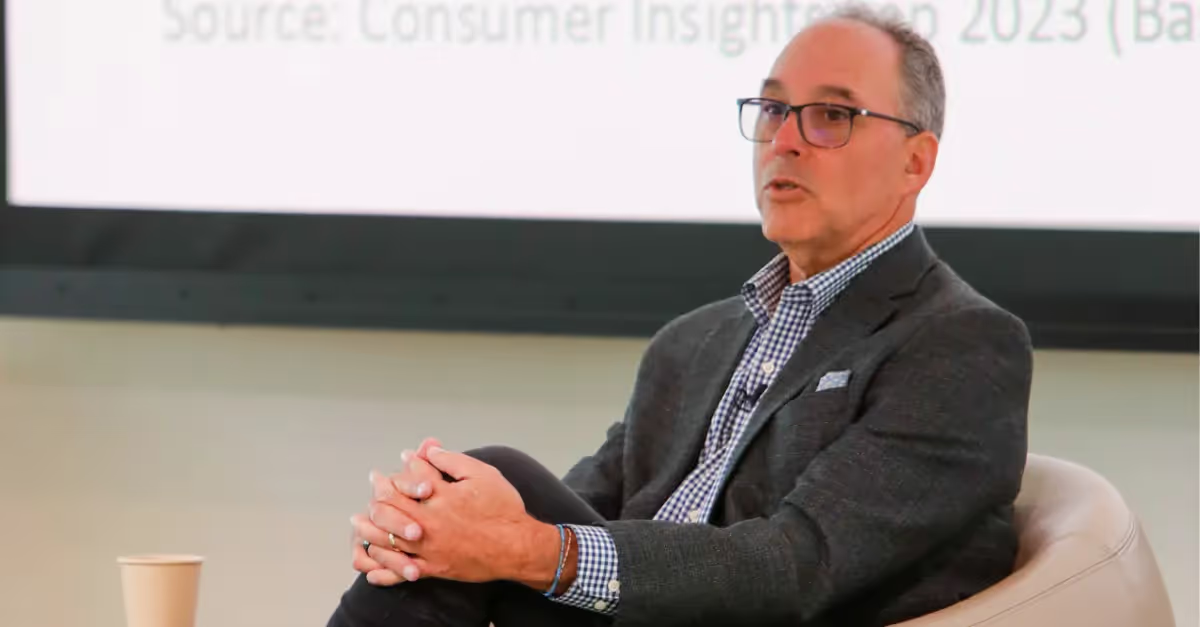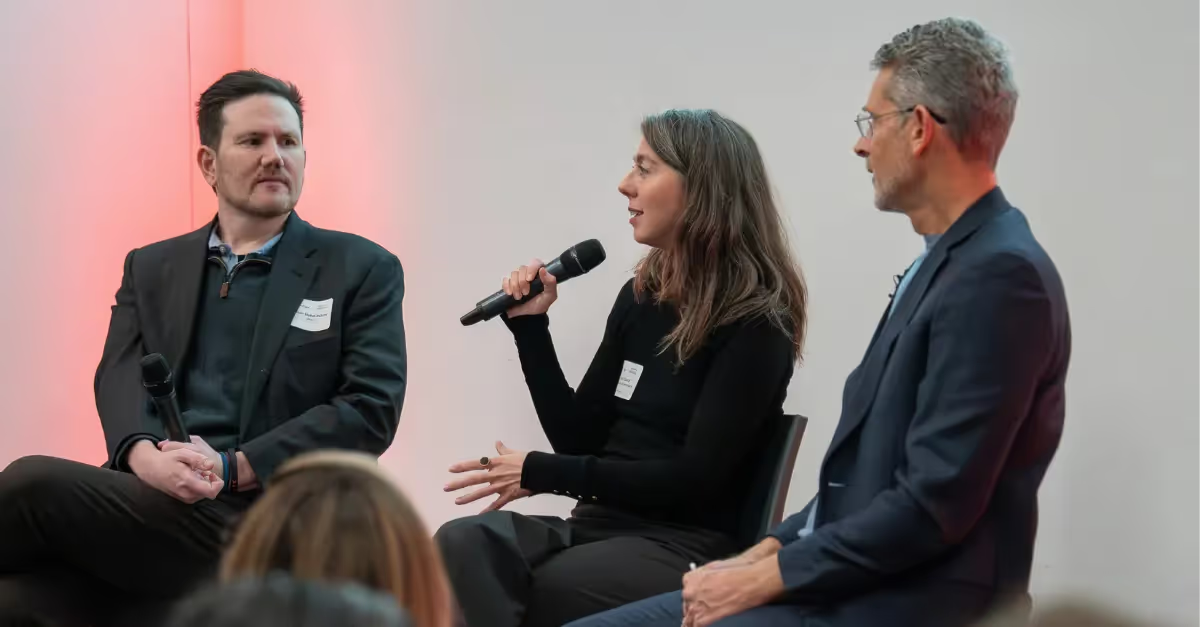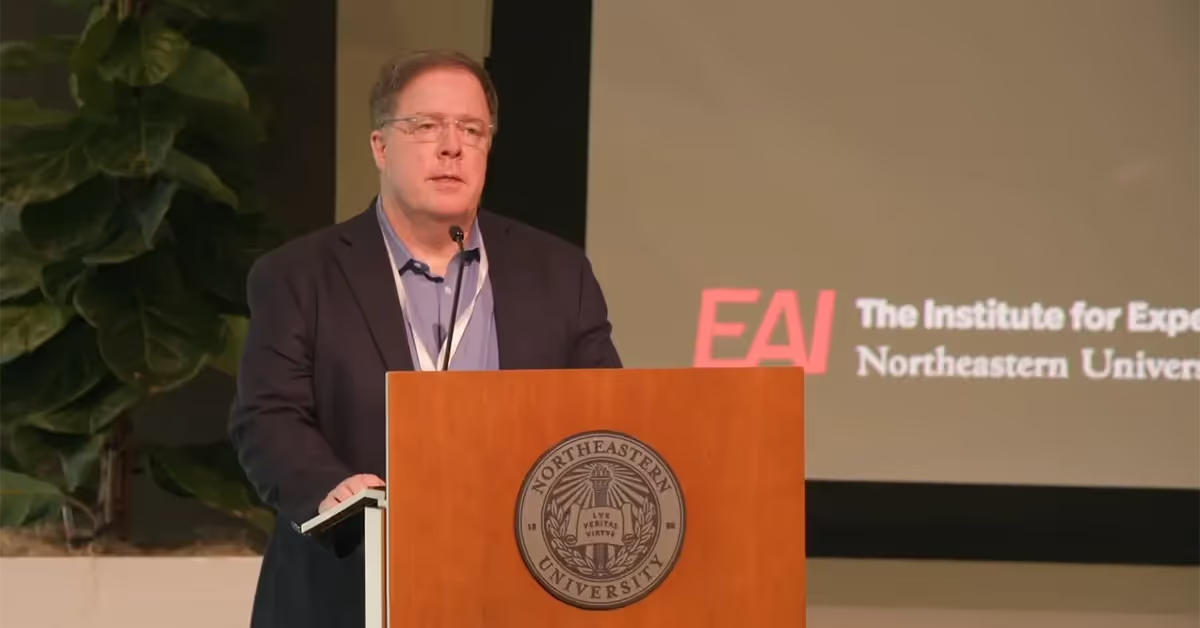Chegg CEO Announces A New Age Of Learning With Generative AI

Dan Rosensweig laid out a compelling vision for AI to radically transform the education industry at the Institute’s Leading With AI Responsible conference.
In January Dan Rosensweig, the CEO of education technology company Chegg, met with OpenAI CEO Sam Altman to discuss ChatGPT, which had been making waves since Altman’s company released the chatbot in November. Over two and a half hours, the CEOs discussed the strengths and weaknesses of ChatGPT 3.5, what new capabilities ChatGPT-4 would bring, and the possibilities for AI to revolutionize education.
Walking out of the meeting, Rosensweig couldn’t get on his phone fast enough.
“I called our team and said, ‘We’ve got to get together. We’re literally going to rip our product down to its roots and we’re going to reinvent it on the fly,’” Rosensweig recalled. “[I realized the potential] of matching our dataset, which is over 100 million step-by-step solutions, our learning taxonomy that had been built over 10 years, our trust that we have with students around accuracy, and our ability to personalize. I said, ‘Time is of the essence, and we can’t wait or second guess the decision to move quickly.’”
Rosensweig shared the story while speaking to a room full of business leaders and AI experts at the Institute’s Leading With AI Responsibly conference. The talk offered attendees an inside look at how one of the largest education companies in the world is leaning into the transformative potential of generative AI. Along the way, Rosensweig also gave examples of how Chegg is currently using AI and offered advice for fellow business leaders grappling with a technology he believes will upend many industries.
“What we know is we can use these tools to go faster,” said Rosensweig, who has spent decades leading organizations including CNET and Yahoo. “What we don’t know is how much it’s going to cost, what it's going to do well, or what it’s going to hallucinate. Chegg decided to embrace it and recognize we had assets that no one else in the world had that would enable us to build the most personalized learning experience ever.”
Climbing The Learning Curve
While Rosensweig may have gotten an inside look at ChatGPT in his meeting with Altman, most of his early exposure to the technology came in a familiar form: endless media hype that made it difficult to drill down on ChatGPT’s actual capabilities.
Still, Rosensweig’s relationship with ChatGPT has been more colorful than most. In a May earnings call for Chegg, he suggested that ChatGPT could impact the company’s ability to grow its student user base. The stock subsequently plummeted 42 percent. Since then, Rosensweig has gained clarity around the limitations of ChatGPT and other generative AI technologies. What he learned has increased his confidence in Chegg’s position.
“We’re not scared, we’re enthusiastic,” Rosensweig told the audience. “The fear came because we didn’t know what [large language models like ChatGPT] were capable of. But the first set of data we looked at showed pretty much 95 percent of what we did, [OpenAI] didn’t do, and in 50 percent of where we had overlap, they didn’t do it well, and it hasn’t gotten better.”
Now Chegg, which provides tens of millions of students with homework help, textbook rentals, and other services, is on a mission to leverage generative AI to completely transform its operations.
“From the perspective of a company that provides tools to more students than anybody in the U.S… the most important thing is that this is a technology that has the opportunity to become the most powerful learning and expression tool that has ever been created,” Rosensweig said.
Chegg Leaps Head-First Into AI
Chegg’s generative AI strategy revolves around the belief that tools like ChatGPT complement Chegg’s services rather than replace them. He believes industry experts will win out over general technologies that have less understanding of the customer.
The first results of Rosensweig’s excited call to his team came in April, when Chegg launched Cheggmate, which offers more personalized learning pathways for students through AI. Using Cheggmate, students can submit written queries and get answers in various formats, with individual steps broken down, and hone in on concepts they don’t understand. The service also offers students tailor-made study materials like quizzes and flashcards.
Chegg is also using generative AI to help create new courses. Rosensweig said it used to take Chegg about 18 weeks and anywhere from $200,000 to $900,000 to create a new course. Thanks to generative AI, the same process now takes about five weeks and $40,000.
“The ability to build more curriculum, and have that curriculum become more personalized and relevant, has accelerated enormously,” Rosensweig said.
At the core of Chegg’s approach is its understanding of the customer — and the collection of data that goes along with that understanding. Chegg plans to use that understanding to help students learn more relevant skills.
“Chegg has the ability to know who you are, what school you go to, what class you’re in, who your professor is, the questions the professor has asked over time, likely the major you’re in, and therefore the job you’re likely to get,” Rosensweig said.
Beyond education, Chegg is also helping companies upskill their workers, and Rosensweig sees a future where Chegg helps its users get insights into their health and wellbeing.
“We’re going to become the day-to-day tool in your pocket that we’ve always dreamed of becoming,” Rosensweig said.
What’s in it for Businesses?
To get the most out of generative AI, Rosensweig said businesses need access to the technology, high-quality data, and a sufficiently bold vision for implementing it into their operations.
Executives will also need to get used to a shift in tempo. Chegg updates data in its models and on its site every hour of the day. Rosensweig compared the accelerated workflow to the changes brought when software companies went from shipping a new disc to customers once or twice a year to continuously updating software through the cloud.
“What you have to recognize is the definition of speed has changed,” Rosensweig said. “Every second of every day you must update what you’re doing. Because your data must be accurate, your user experience must be relevant, your personalization must be right. There is no waiting six months to fix it. There’s only fixing it now.”
Changing the Conversation
Every student has their own preferred way of learning. Generative AI can explain quantum mechanics in the language of a university professor, a poet, or a monk. Rosensweig believes that kind of versatility can make education accessible to more types of students.
“There might be people who can’t understand one analogy but will understand another analogy,” Rosensweig explained. “This thing came out a year ago, but it already has the ability to not only talk, but to make these ideas culturally relevant on an individualized basis.”
Rosensweig acknowledged concerns about cheating and other threats to academic integrity brought by generative AI. But he also sees the technology as an opportunity to address long-standing problems in education.
“If you gave this to every student in kindergarten regardless of their background, gender, race, or language — giving everyone something that has the potential to be the most power language and expression tool ever created — could we finally break through the structural barriers?” Rosensweig asked.
Indeed, Rosensweig characterized generative AI deployment as an obligation more than a hazard:
“What if you change the dialogue in education from, ‘We don’t want kids using this to cheat’ — which we don’t — to ‘Isn’t it our moral imperative to make sure that everybody in the world knows how to use a tool that may change the world?’”
Get more insights shared by experts at the Institute’s flagship business leaders conference here.




